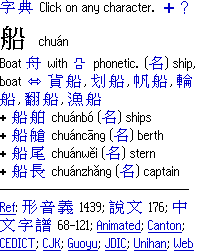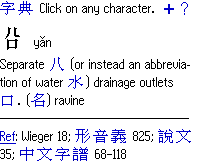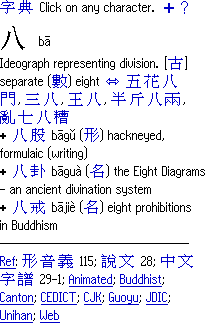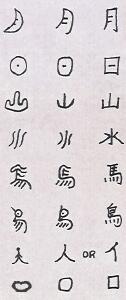The "ship" or "boat" character, according to zhongwen.com.

When I click on the phonetic to see what it is and where it came from, I get this:

So then I click on the "division/separate/etc" glyph to see what it is and where it came from, and get this:

That's the "ba" character, otherwise known (as seen above) as "eight."
That should end all discussion, but it won't, because some people don't like to live in the land of reality. That's the end of it for me, though, so enjoy.

When I click on the phonetic to see what it is and where it came from, I get this:

So then I click on the "division/separate/etc" glyph to see what it is and where it came from, and get this:

That's the "ba" character, otherwise known (as seen above) as "eight."
That should end all discussion, but it won't, because some people don't like to live in the land of reality. That's the end of it for me, though, so enjoy.





